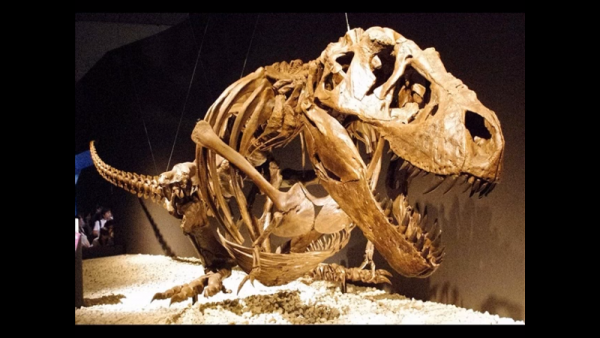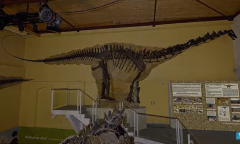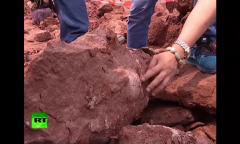By KM Diaz, | June 02, 2017

"Jurassic Park" will never exist and happen in reality, according to the Palaeontologists at the University of Manchester. (YouTube)
"Jurassic Park" will never exist and happen in reality, according to the Palaeontologists at the University of Manchester. They definitely proved their findings after re-analyzing the collagen from the bone of a Tyrannosaurus rex found decades ago.
The most common question from the public to Palaeontologists is if Jurassic Park will happen in reality. After the discovery of the 68 million-year-old Tyrannosaurus rex fossil with protein sequences 10 years ago, scientists worldwide have ignited their imagination that, one day, Jurassic Park will exist. The prehistoric proteins provided a glimpse on rebuilding dinosaurs, however, the discovery caused debate in the scientific community.
Like Us on Facebook
The same team conducted another research with another dinosaur, the Brachylophosaurus. The debate on the preceding study questions the possible bacterial contamination or much modern contamination when the bone will be analyzed in the laboratory.
Dr. Mike Buckley, the lead author of the research from the University of Manchester, said that the findings of the dinosaur bones' proteins sent different reactions worldwide, both scientist and public. Now, using the latest methods, the fiction will be shifted into fact.
The research team from the National Museums Scotland and the University of Manchester examine the dinosaur peptides to identify if it could come in modern animals, alligators and ostriches were used in the original study.
The team from Manchester studied the three different bone samples of ostriches; the result shows a strong match to all the original fossil peptide from Brachylophosaurus and T. Rex and highlights the requirement of authentication standards in identifying biomolecular sequence information from ancient fossils.
Dr. Buckley explains that they did not intend to debunk previous studies as they were only set to identify collagen fingerprints of Alligator and Ostrich. However, the finding revealed that collagen likely sustained in ravages of deep time.
The key protein of bone providing flexibility in the skeleton is collagen, which dominates the palaeontological and archaeological record and can give significant data on extinct and living organisms. Yet, collagen sequences that survived beyond 3.5 million years have not been confirmed by any other study.
Professor Phil Manning, the co-author of the study from the University of Manchester, also added that the fossil record offers new insight on a daily basis using the latest technology. The discovery of alleged protein sequences in dinosaur bones has led several studies into failed trials to repeat notable cases, like attempting to replicate something beyond the current limits of science.
In addition, controls that are utilized to force the evolutionary relationships of existing and extinct organisms should be confined from the subject of the study to prevent residues of misleading contaminants, leading to false results.
-
Use of Coronavirus Pandemic Drones Raises Privacy Concerns: Drones Spread Fear, Local Officials Say

-
Coronavirus Hampers The Delivery Of Lockheed Martin F-35 Stealth Fighters For 2020

-
Instagram Speeds Up Plans to Add Account Memorialization Feature Due to COVID-19 Deaths

-
NASA: Perseverance Plans to Bring 'Mars Rock' to Earth in 2031

-
600 Dead And 3,000 In The Hospital as Iranians Believed Drinking High-Concentrations of Alcohol Can Cure The Coronavirus

-
600 Dead And 3,000 In The Hospital as Iranians Believed Drinking High-Concentrations of Alcohol Can Cure The Coronavirus

-
COVID-19: Doctors, Nurses Use Virtual Reality to Learn New Skills in Treating Coronavirus Patients













